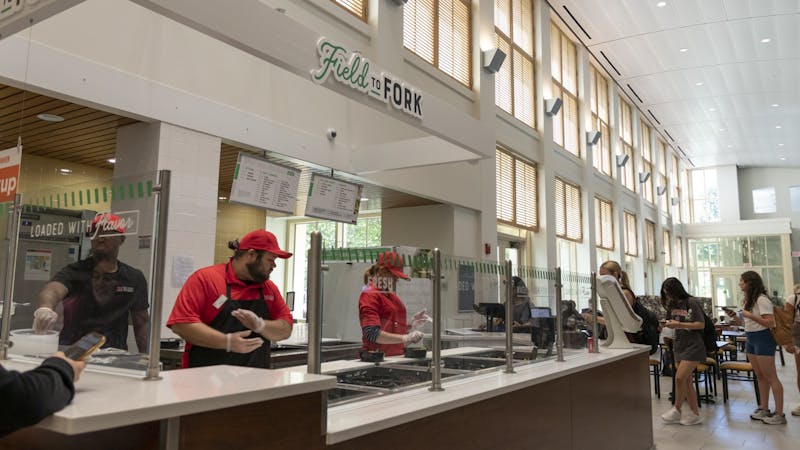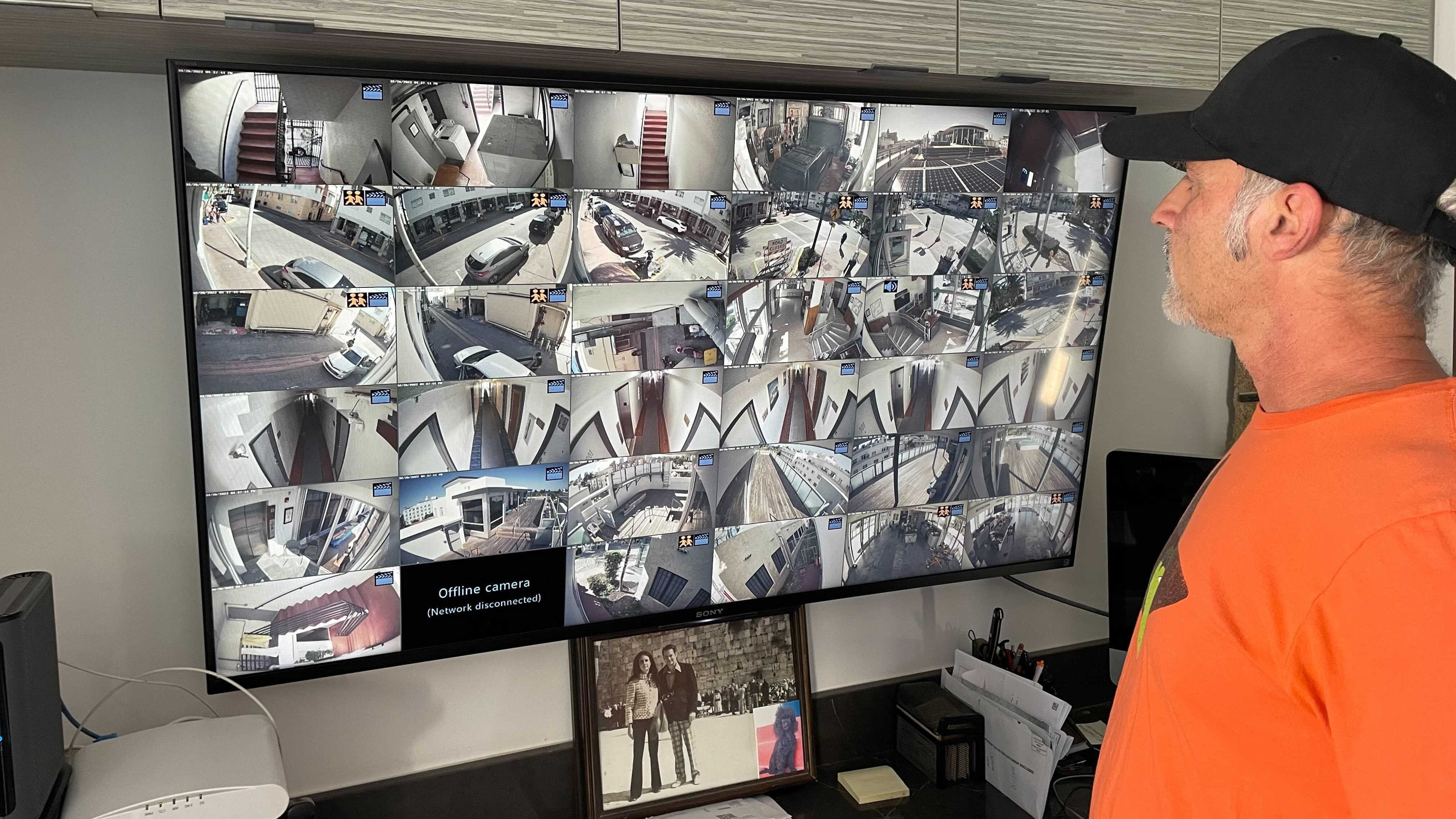Big changes come to Miami dining — and it’s more than just the food
If you’ve been to the Armstrong Student Center this semester, you may have noticed that things are a little different.
Sumeshi and Toasted Bagel are gone, Red Zone doesn’t have burgers anymore and there are many new food items to choose from. Even the pizza’s different.
The cause of these changes is Miami University’s decision to outsource its dining services to Aramark Corporation, a large-scale food service provider. The transition took place on June 1, with the changes in full effect this fall.
Meghan Lolli, a senior speech pathology and audiology major at Miami, said ordering feels more streamlined with the transition from GET ordering to ordering in conjunction with Grubhub.
“I feel as if everything is a little bit more organized,” Lolli said. “I like that you’re able to see how Grubhub can track things like your order number and the wait time for food, and I feel like ordering is now organized in the sense that it is a lot more time efficient.”
The shift hasn’t just affected the wait times, though.
Jeff Mills, representative for Miami staff’s housing and dining union, said the outsourcing meant that Aramark employees were now working directly with Miami dining staff.
“Miami still has their Miami employees in dining, but Aramark also has Aramark employees in dining,” Mills said. “It gets a little complicated sometimes, and it’s a little weird because Aramark employees have a different set of wages and benefits than Miami employees.”
Mills said the transition in expectations and jobs could be rough after years of stability for some dining employees.
“It’s a rough transition [for Miami employees], honestly,” Mills said. “If you worked at a place for 20 or 25 years and you see an outside company take over, the natural feeling is to feel threatened by that. Some of these employees of 25 plus years are having a hard time doing something different after doing stuff in a certain way for that long.”
From the Aramark side, however, the transition has been going well.
Alex Nikas is an Aramark employee who has worked across the U.S. and currently helps manage employees at Pulley Diner. He said having united goals is key to the teamwork between Aramark and Miami employees.
Enjoy what you’re reading?
Signup for our newsletter
“We try to be friendly altogether and work together to try to help each other out,” Nikas said. “The main thing is that we are one thing. We try to be on the same page and try to have the same goals which is to have good quality and give the students a place to study, relax and eat something fresh with good quality ingredients.”
Nikas only manages Aramark employees but had a lot of praise for the dining workers from Miami.
“People from Miami are friendly; they don’t work for us but they help,” Nikas said. “If you’re on the street and see someone who needs help, you’re going to help them — that’s how things work around [Pulley]. All the people are friendly, and they work in the same environment and place.”
Student positions with Aramark are also being opened for application, with a starting wage of $14 per hour and a free meal every shift.
While the changes that have already happened are big, there’s much more in store for the future. Scott Weir, the vice president of Aramark, detailed some of these plans in an email to The Miami Student.
“Plans are being developed to renovate King Café into a Village Juice restaurant for fall 2023, with a menu of cold-pressed juices, salads and smoothies,” Weir wrote. “We are also exploring how delivery robots might be incorporated to campus to make food deliveries from [Armstrong and Bell Tower Commons].”
Other important plans for the 2023 school year include a Panera Bread replacing the Toasted Bagel and the reopening of Bell Tower in fall 2023.



